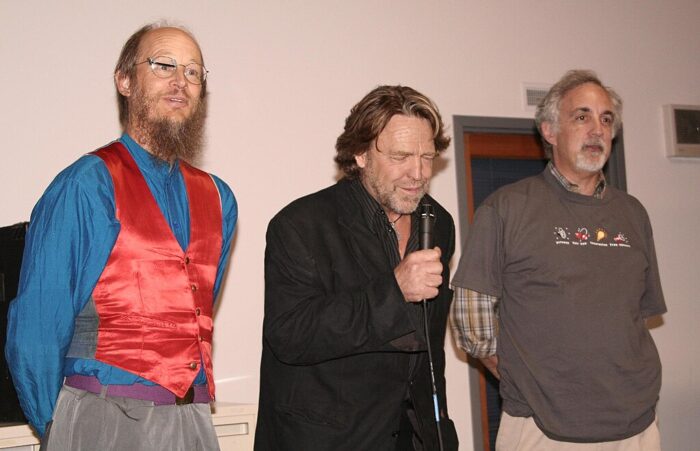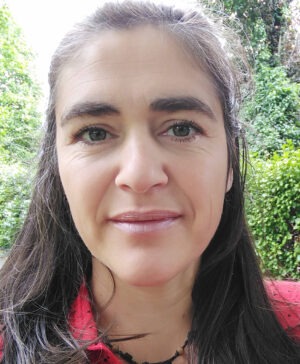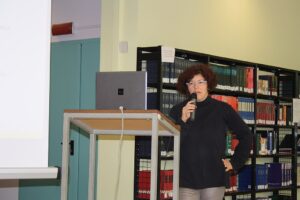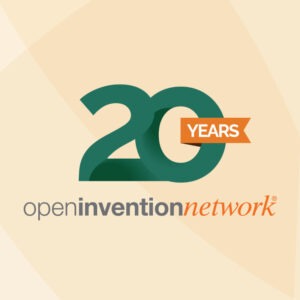The Free Software Foundation might be getting itself back on track as the radical watchdog for copyleft and free software with the appointment of free software activist and pioneer John Gilmore to its board of directors.

I haven’t seen so much open activist cred walk up to a table at any organization since maybe the early 1970s. Effective June 23, which was last Monday, John Gilmore is now a board member at the Free Software Foundation, along with new members Christina Haralanova and Maria Chiara Pievatolo.
The fact that these three new members come loaded with old fashioned activist moxie might be just the thing to get FSF back on track. Since the silencing of Richard Stallman in 2019 and the sudden departure of longtime executive director John Sullivan in 2022, the once robust organization seems to have lost both its direction and clarity of purpose.
I’m a little skeptical however, because for this to work the existing board will need to not only tolerate outspokenness, which will definitely be coming from John Gilmore, but to actually encourage it from the rest of the board. Unfortunately, in our current age such an approach goes against the tide and strong personalities are discouraged, which is one reason why once important FOSS organizations such as the FSF have been sliding into irrelevancy.
“The FSF has made a major step towards establishing a solid governance structure that sets us up for a strong future in which we can respond to software freedom threats ahead of us,” is how the organization’s president Geoffrey Knauth described the addition in a statement that FSF issued on Wednesday.
Let’s see if that “strong future” arises by letting the strong personalities be strong, thereby strengthening the resolve of others.
Gilmore’s Tech Activist Cred
It’s Gilmore who’ll fill the role of the needed shit disturber here, if he’s allowed to do so. He’s something of an old school hippie radical activist rock star, who’s quite at home playing in several types of tech arenas. Since at least 1990, the year that he co-founded the digital rights organization Electric Frontier Foundation, he’s been a tech activist. Starting about then, or maybe a little earlier, he’s been advocating for the free software movement, as well as maintaining FOSS projects such as GNU Debugger.
His resume includes initiating GNU Radio in 1998, starting the Gnash media player (a free software player for Flash movies) in December 2005, and writing the pdtar program, which eventually became GNU tar. On the privacy/encryption front, he founded the FreeS/WAN project to promote the encryption of internet traffic, sponsored “Deep Crack,” the EFF DES cracker, and is a longtime proponent of opportunistic encryption.
Before that, back in 1985, he and Bill Croft co-authored the Bootstrap Protoco, which evolved into DHCP, the method by which Ethernet and wireless networks assign devices an IP address. Even earlier, circa 1982, he was the fifth employee at Sun Microsystems. Later, in 1989 he was a co-founder of Cygnus Support, which supplied commercial support for free software, among other things, and which merged into Red Hat in 2000.
He’s also not afraid to stir stuff up — which is a pretty important trait for an activist but one that might pose a problem in this new role on FSF’s board. Just a few years back, for example, in October 2021, EFF kicked him off its board following a governance dispute. Whether history repeats itself at FSF will likely be as dependent on the existing board’s tolerance of dissent as much as it will be on any stances Gilmore takes.
Quotable quotes? He once famously said, “The Net interprets censorship as damage and routes around it.”
Just because I give Gilmore top billing here doesn’t mean the other two new board members are slouches. They’re not — by any stretch of the imagination.
Haralanova: FOSS and Women’s Rights

Christina Haralanova has been an activist for the past 20 years, working at the crossroads of FOSS and feminism. She bills herself as an academic researcher, free software activist, technical trainer, and university lecturer. Her list of accomplishments includes helping more than 30 women’s rights organizations understand the importance of software freedom while helping them migrate to free software.
Although a native of Bulgaria, where she was a founding member of that country’s Free Software Association, her LinkedIn resume indicates that she’s called Canada home since 2006. Since arriving on this side of the Atlantic she’s worked to obtain a couple of postgraduate degrees: a master’s from UQAM (Université du Québec à Montréal) and a Ph.D. from Montreal’s Concordia University, with both degrees being in communication and media studies.
“Software freedom is … the struggle of many more communities than we can imagine,” Haralanova said in a statement about her new role at FSF. “While accompanying and training rights-protecting activists, including feminists, environmentalists, human rights defenders, librarians, and journalists, I have found a deep understanding and support for technical activism along with their core activism. We at FSF need to reach those supporters in a way that makes it easier for them to adopt, adapt, and diffuse the concepts of freedom among their peers.”
Pievatolo: Pushing for Openness in Acdemics

While both Gilmore and Haralanova come to the table with lots of experience in open software, Maria Chiara Pievatolo’s focus has been on open academics. According to FSF, she is one of the earliest Italian proponents and practitioners of “open” scholarly principles, and she’s the founder of one of Italy’s oldest open access journals in the field of humanities and social sciences — Bollettino telematico di filosofia politica.
She is also a founding member and the current president of the Italian Association for the Promotion of Open Science (AISA).
According to FSF: “Inspired by the philosophy of GPL, free software, and copyleft she is interested in alternative non-monopolistic forms of copyright … that are capable of taking seriously the interest of the public use of reason and the knowledge commons.”
In a statement, Pievatolo said of her new role: “The first best thing would have been to modify copyright law to protect authors and the public instead of intellectual monopolies. But doing it by hacking copyright for fun and freedom, against corporate-captured lawmakers, was — and is — certainly the second best.”
Free Software Foundation Getting Its Ducks in a Row
These three new members of FSF’s board are the first to be appointed since 2020, FSF said. They will serve briefly as non-voting associate members, which will be followed by an evaluation in August. At that time, voting members will decide whether the three new members should become full fledged voting members.
Christine Hall has been a journalist since 1971. In 2001, she began writing a weekly consumer computer column and started covering Linux and FOSS in 2002 after making the switch to GNU/Linux. Follow her on Twitter: @BrideOfLinux






